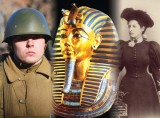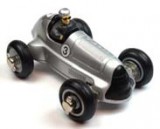What makes for good primary history? Dr Tim Lomas asks if there is a consensus...
There has been a common feeling over many years that history is one of the most controversial curriculum areas. Much of that debate has centred on issues such as content versus skills, whether its better taught discretely or even whether history is too difficult conceptually for young children to understand. Such debates have often been aired very publicly through the media and sometimes in Parliament.
Given this context, it is easy to lose sight of the fact that there is much more general agreement about what constitutes good primary history practice than there is disagreement. The research and the results of surveys and reviews from organisations such as Ofsted and the QCA have defined good and successful practice in quite similar ways. Even pupils’ thoughts on the matter seem to resonate with these opinions. This does not mean that the debate is over but it does act as a timely reminder that primary history is not totally riven with division and confusion.
For instance, there is now a general acceptance that:
• History can be made meaningful even to very young children
• Content is of importance but that this is underpinned by key concepts such as chronology, change, causation and evidence
• Variety is important
• Effective learning benefits from an enquiry approach
• Pupils should be introduced to a variety of source materials, including some from outside the classroom
• Understanding is improved by making links, comparisons and contrasts with the different themes and content covered, as well as with other curriculum areas
Evidence also suggests that many primary age pupils enjoy history when adopting these approaches. Consistently, surveys about pupil motivation and enjoyment suggest that they relish variety, active approaches, an emphasis on people and what makes them tick – as one teacher described it “a mix of the detective story and the soap opera”. The story still matters in history.
 However, few would accept that primary history is just a collection of good stories, particularly when confined to tales of blood, gore and filth. The earlier mention of the underpinning concepts is vital and, for many, this remains the most challenging aspect of teaching the subject. Few now believe it is a curriculum area that can be taught by anyone just by picking up a book or scheme of work.
However, few would accept that primary history is just a collection of good stories, particularly when confined to tales of blood, gore and filth. The earlier mention of the underpinning concepts is vital and, for many, this remains the most challenging aspect of teaching the subject. Few now believe it is a curriculum area that can be taught by anyone just by picking up a book or scheme of work.
What follows is the attempt by a group of teachers and advisers to try to define the ideas behind these concepts in terms of key ideas. It is one thing to ask a teacher with just a small amount of initial training in the subject to teach the concept of “historical causation” in a progressive way but quite another for them to understand it. This was an attempt to clarify the key ideas behind the main historical concepts so that teachers and pupils could see the ideas that needed to be developed and embedded through the primary years. Their planning and questioning approaches could thus pay heed to developing an understanding of these ideas over time and through applying them across a greater range of periods, individuals, societies, places and perspectives.
Those developing these ideas produced a separate list for Key Stage 1 and for Key Stage 2. Space precludes both but these are the ideas produced for developing across the four years of Key Stage 2.
• A world existed before they and those around them were born – some things occurring many years ago
• The past can be described in different ways – dates, period labels, decade, century etc
• The past was different to today, some things have changed but some things are the same
• People in the past had feelings and emotions, usually doing things for a reason and often for different reasons. Although there may be different motives, some might be regarded as more important
• It is not always easy to work out why things happened and why people did things
• Reasons can be connected to results but things did not always turn out as planned
• People in the past did not know the same as we do today but they were not really more stupid. When things happened, it was often confusing and uncertain for people and they do not have what is called hindsight. They did not know how things would turn out
• We can put together a story about the past in different ways. It is we ourselves who put together the stories of history and it can be different if we use different information or have views about what is important. This does not mean that one version is right and another wrong. We might have different views as to whether something has improved or got worse and our views are not necessarily the same as those in the past
• People in the past did not always think the same things were as important in their lives as you do today
• We find out about the past from different sorts of information such as written accounts, artefacts, pictures etc. Some topics have lots of surviving information and some not very much
• Not all the information can be trusted. We always need to be careful when using any evidence from the past. With care though, we can make some use of all information – it always tells us something about the past
• It is often better when we can find more than one piece of information. The more we find, the more we are likely to be closer towards what probably happened
• There is a difference between a source and evidence. The source is the information but it is you or the historian who uses it as evidence in your own way to answer your questions
• We never know everything that happened in the past so it means that we have to work out things that are likely to have happened and that means giving opinions and ideas rather than definite facts
• Because we need to tell a clear story, we need to choose which bits to use and this means deciding what is important
Whatever the curriculum structures of the future, a historical awareness is likely to remain a vital and motivating aspect of any pupil’s development. And while it may be the “soap opera” of history that grabs children’s attention, it is an understanding of the underpinning concepts, such as chronology, change, causation and evidence, that characterises effective history teaching.
You should start worrying about the health of history teaching in your school when…
 • The time gets squeezed to the worst slot in the day
• The time gets squeezed to the worst slot in the day
• There is no support from the senior leaders
• No attempt is made to monitor progress
• The subject leader has reluctantly taken on the role
• Pupils of all ages and abilities produce very similar work
• The pupils do not care about history, or engage with the people of the past
• The value of the subject is widely questioned
• There is too much copying
Join the historical association and move your lessons up a gear…
Any teacher who wants to find out more about what constitutes good primary history should take a closer look at what the Historical Association has to offer. The HA has been the voice of history in education since 1906, and has been leading activities and campaigns to raise the profile of the subject at local and national levels for over a century.
Membership is open to everyone. Signing up provides access to resources, lessons ideas, professional expertise, news updates from the history community, and career development. It can also save you money as the Historical Association negotiates discounts on books, journals, holidays and entry to historical attractions on behalf of its members.
A special section on the HA website caters specifically to primary educators with monthly e-mail newsletters. Teachers can benefit from CPD activities and an Initial Teacher Training series designed to support trainees, too.
You’ll also receive a 12-month subscription to Primary History, the Historical Association’s widely respected journal that offers both experienced and new teachers valuable ideas for lessons, and an eye on pioneering projects.
If you would like to know more about becoming a member of the Historical Association, please visit http://www.history.org.uk or call 020 7735 3901.
Tim Lomas is Principal School Improvement Adviser, Lincolnshire School Improvement Service, and Deputy President of the Historical Association
Boosting children’s self esteem
Ace-Classroom-Support
Why Boarding School Fiction Feels Comfortably Familiar
Ace-Classroom-Support
How to use Harry Potter to engage high-ability learners
Ace-Languages
